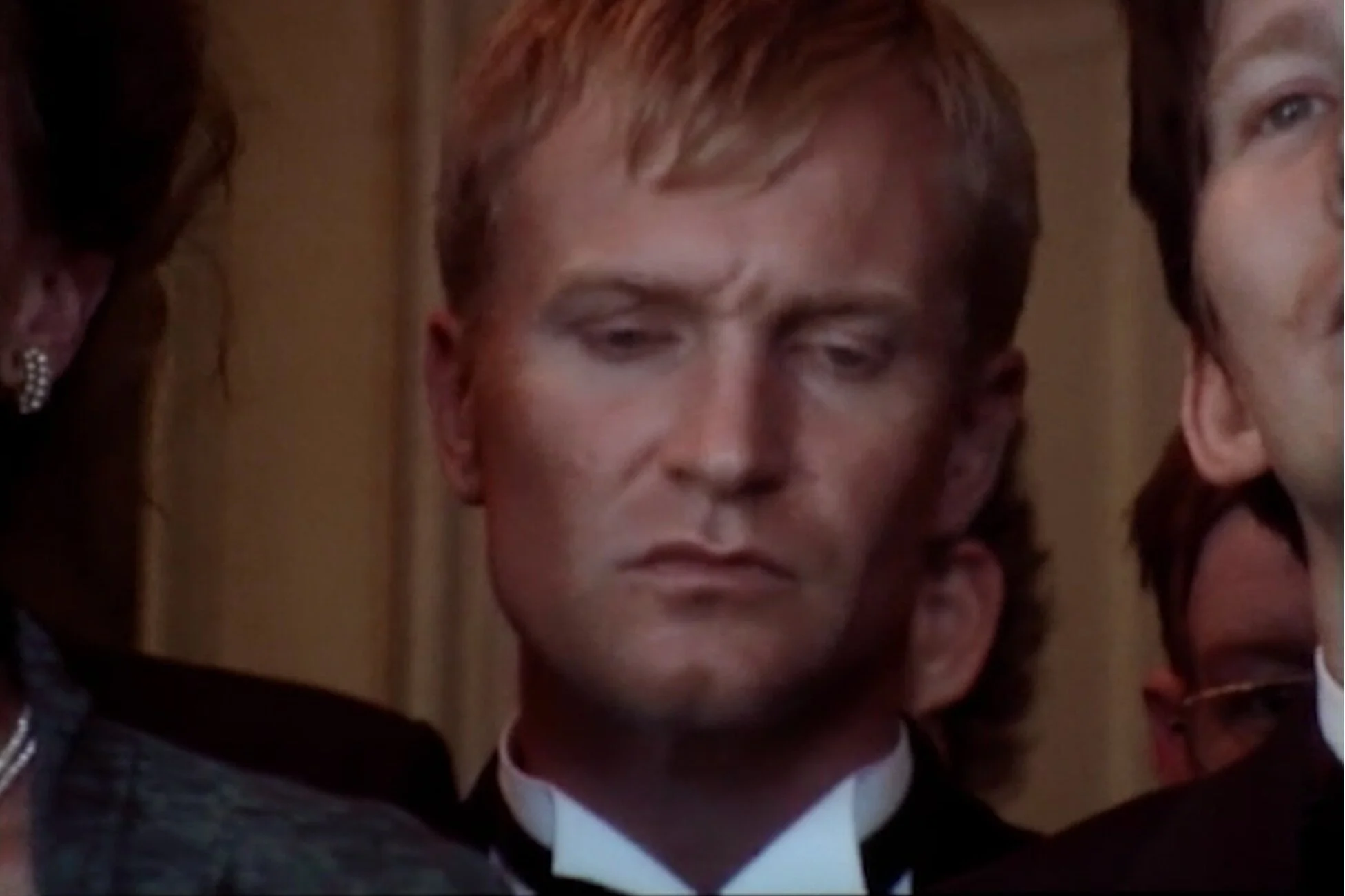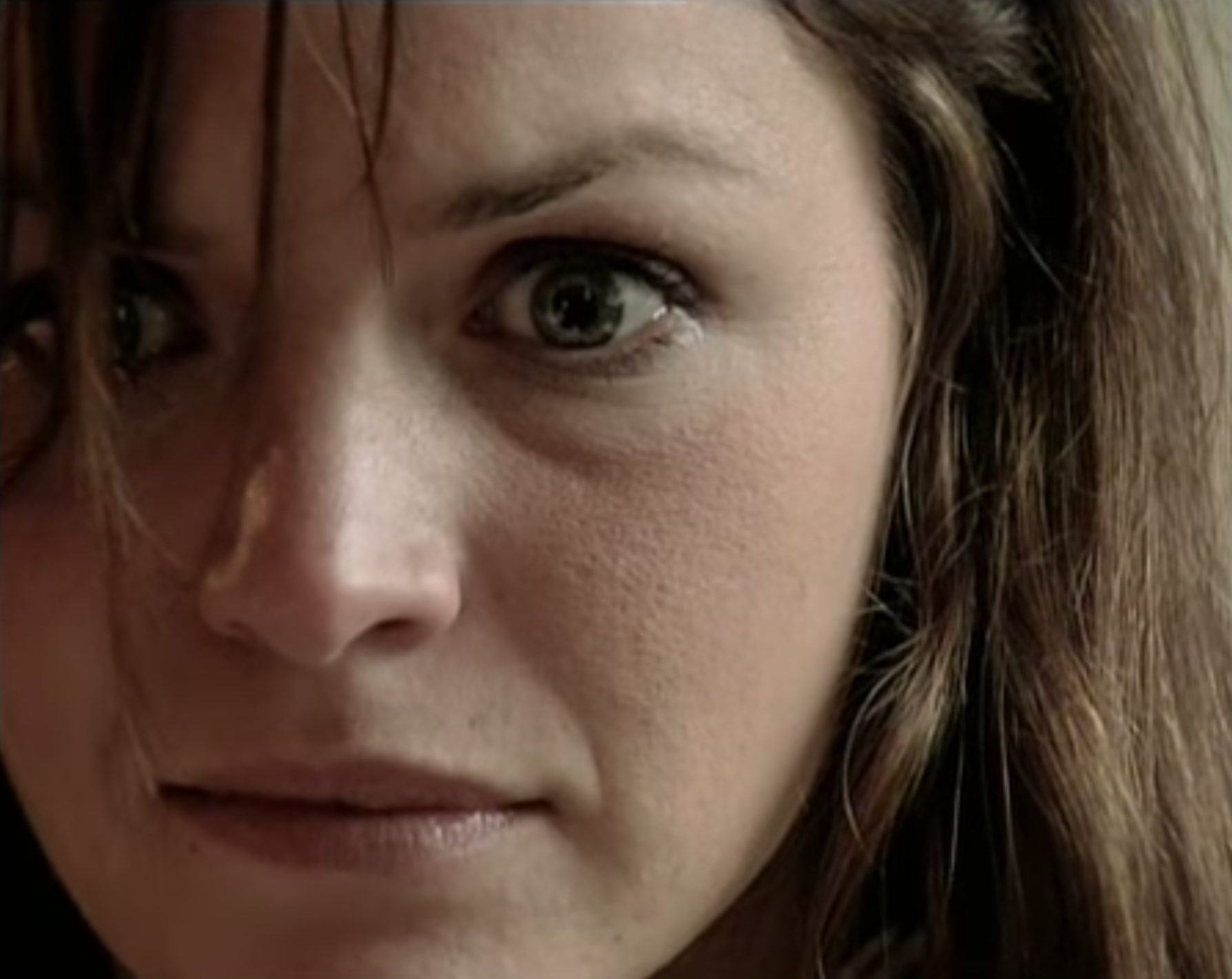Dogme95 Films: A Complete List (1995 - 2004)
/Festen (credit; Nimbus Film)
100 years after the Lumière brothers first projected moving pictures to a paying audience, industry professionals were looking forwards to cinema’s second century. An event, Le cinéma vers son deuxième siècle, was held in Paris with the purpose of discussing the future of film. Many of the industry’s elite were in attendance, and it was here that Danish director Lars von Trier would unveil the Dogme95 manifesto he and a group of contemporaries had created to ‘rescue’ cinema.
Living up to his reputation as a provocateur, Lars von Trier reportedly threw 500 red pamphlets into the audience. They outlined the Vow of Chastity, a set of rules by which filmmakers can create work that combats the industry’s most prevalent issues.
The pamphlets explained that “DOGMA 95 is a collective of film directors founded in Copenhagen in spring 1995” because outlining the goal of “countering 'certain tendencies' in the cinema today. DOGMA 95 is a rescue action!" When it was Lars von Trier’s time to speak, he elaborated on the movement’s intentions, saying that “in the last 20 years – no, let's say 10 then – film has been rubbish. So … what can we do about this?” For the next decade, this question would be answered by filmmakers from around the world who wanted to join the film movement.
Dogme95 would develop into a collection of 35 films (10 of which came from Denmark) that collectively challenged the industry's status quo, albeit with varying degrees of critical attention, influence and commercial success. Below you will find a complete timeline of Dogme95 films from 1995 to 2005. Note that although the director’s names have been included, the Vow of Chastity dictates that directors must not be credited on their work.
Dogme #1: The Celebration (1998) Festen by director Thomas Vinterberg
Festen (credit; Nimbus Film)
In this first addition to the movement, a series of dark family secrets are revealed during a 60th birthday party. The story was inspired by a shocking radio broadcast where a man shared his history as a victim of abuse. However, the caller’s story was later found to be a hoax.
Festen was selected as Denmark’s Best Foreign Language Film at the 71st Academy Awards, but the film wasn’t accepted as a nominee. However, it was awarded the prestigious Jury Prize at 1998’s Cannes Film Festival. Despite this achievement, it is still best known as the first film to abide by the Vow of Chastity.
Dogme #2: The Idiots (1998) Idioterne by director Lars von Trier
The Idiots (Credit: Arte)
A provocative group in Copenhagen do everything within their power to release their inhibitions, including pretending to have developmental disabilities.
The Idiots is von Trier’s second installment of his Golden Heart Trilogy, which also includes Breaking the Waves (1996) and Dancer in the Dark (2000). The film sparked debates about its representation of disabilities, and for the inclusion of unsimulated sexual intercourse.
Dogme #3: Mifune (1999) Mifunes sidste sang by director Søren Kragh-Jacobsen
A man who moved from a small Island farm to Copenhagen must return to his provincial roots when his father dies. Seeking help with running the family farm, he recruits a prostitute running away from her past.
The film won the Silver Bear at the 49th Berlin International Film Festival, and was a success in Denmark and internationally.
Dogme #4: The King Is Alive (2000) By director Kristian Levring
The King is Alive (Credit: Nordisk Film Distribution)
When their bus runs out of fuel, a tourist group find themselves trapped in the Namibian desert. As their situation worsens, one man encourages the group to perform King Lear. As they go through the Shakespeare tragedy, the lines between fiction and reality begin to blur.
Dogme #5: Lovers (1999) By director Jean-Marc Barr
A French woman falls for a Yugoslavian man before learning that he is an illegal immigrant.
Dogme #6: Julien Donkey-Boy (1999) By director Harmony Korine
Julien Donkey-Boy (Credit: 391 Productions)
Korine's Julien Donkey-Boy is the first American film to be accepted as a Dogme95 film. The film shows the potential effects schizophrenia can have on a family and their daily lives.
Julien Donkey-Boy stars Ewen Bremner and features long-time Korine collaborator Chloë Sevigny and Werner Herzog in supporting roles.
Dogme #7: Interview (2000) By director Daniel H. Byun
A documentarian falls for his interviewee while discussing a previous relationship.
Dogme #8: Fuckland (2000) By director José Luis Marquès
Fuckland
Set after the Falklands war, a magician from Argentina secretly films a short trip to the Falkland Islands, where he plots a ‘sexual invasion.’ This includes a plan to impregnate a British woman: by his own logic, it would take 500 Argentinian men each year to do the same, in order to create children from both cultures.
Dogme #9: Babylon (2001) by director Vladan Zdravkovic
Although Babylon is considered to be ‘Dogma #9’, the project was never completed.
Dogme #10: Chetzemoka's Curse (2001)
Marie works as a hotel maid in a small town. After detailing her first experience of being in love, she tries to convince an older, married man to leave his family and take her on a trip to Thailand. Numerous other characters then share their own experiences of first loves and betrayal.
Chetzemoka’s Curse has numerous directors: Rick Schmidt, Maya Berthoud, Morgan Schmidt-Feng, Dave Nold, Lawrence E. Pado, Marlon Schmidt, and Chris Tow.
Dogme #11: Diapason (2001) By director Antonio Domenici
Diapason follows two parallel stories taking place in Rome. When a film director searches for a beautiful actress to be in his latest project, he believes Claire might be perfect for the role.
Dogme #12: Italian for Beginners (2000) Italiensk for begyndere By director Lone Scherfig
Italian for Beginngers (Credit:Miramax)
Partially based on Maeve Binchy's Evening Class, the romantic comedy centres on a group of lonely individuals living in the Danish suburbs who take lessons in Italian in the hopes that they will also find love. Italian for Beginners won several accolades, including the Jury Grand Prix Silver Bear at the Berlin Film Festival.
Dogme #13: Amerikana (2001) By director James Merendino
aMERIKANA
Two friends travel from South Dakota to California on a scooter, leading to a range of experiences by which they can physically and metaphorically view their homeland.
Dogme #14: Joy Ride (2000) Usfahrt By director Martin Rengel
A young girl, Sandra, falls in love with Daniel, who belongs to a close-knit group of friends. The clique spends its time cruising around the city, smoking and drinking. But as Sandra spends more time alone with Daniel, the group decides that she is that is a nuisance.
Joy Ride is based on a real homicide that took place in Zurich in 1992. Members of the group were ultimately convicted, and the real life tragedy was a major news story in Switzerland at the time.
Dogme #15: Camera (2000) By director Rich Martini
cAMERA
In this found-footage drama, a stolen video camera captures a series of personal moments around the world. Camera also features cameos from celebrities such as actress Rebecca Broussard (Die Hard, Mars Attacks!), supermodel Carol Alt, and model Angie Everhart.
Dogme #16: Bad Actors (2000) By director Shaun Monson
A group of terrible actors attempt to improve their performance skills.
Dogme #17: Reunion (2001) By directors Leif Tilden & Mark J. Poggi
Reunion (Credit: FilmMates Entertainment)
The day before their 20th high school reunion, a group of old friends are brought together to relive memories of 1981. The film is also known as American Reunion.
Dogme #18: Truly Human (2001) Et rigtigt menneske By director Åke Sandgren
An invisible man spawned from the imagination of a 7-year-old is given the opportunity to become human. With no identity, he must try to integrate into society.
Truly Human stars Nikolaj Lie Kaas, who also featured in Lars von Trier’s The Idiots as Jeppe.
Dogme #19: Cabin Fever (2000) Når nettene blir lange by director Mona J. Hoel
cABIN fEVER
An extended family travel to a cabin in the mountains for the holidays. But on Christmas Eve, arguments start a chain reaction in which a series of family secrets unfold. Når nettene blir lange was the first Dogme film from a Norweigen writer/director.
Dogme #20: Strass (2001) By director Vincent Lannoo
A despicable teacher uses his prestigious reputation to verbally and sexually abuse his students.
Dogme #21: Kira's Reason: A Love Story (2001) En kærlighedshistorie By director Ole Christian Madsen
Kira's Reason: A Love Story (Credit: Nimbus Film)
When a young mother is released from a mental institution. Having been isolated from society for two years, she now must reclaim her family life.
Dogme #22: Once Upon Another Time (2000) Era outra vez by director Juan Pinzás
Ten years after graduation, a group of old friends plan a reunion. With mutual discontent with how their lives have panned out, a weekend together uncovers the best and worst of their character.
Dogme #23: Resin (2001) By director Vladimir Gyorski & Steven Sobel
A convicted drug dealer sets out to make one final score. In his attempt to claim a fresh start, he must face a legal system that threatens to take everything from him – including his life.
Dogme #24: Security, Colorado (2001) By director Andrew Gillis
After moving to Colorado for her boyfriend, Karen gets a job in a record store. When she witnesses a shoplifter at work, she opts to befriend them rather than report the crime.
Dogme #25: Converging with Angels (2002) By director Michael Sorenson
When a successful male escort living in Chicago finds a woman passed out on the sidewalk, he impulsively decides to take her home. Little did he know that this would change their lives are changed forever.
Variety describes Converging with Angels as an “extreme” example of the Dogme acting school that “treats a rather lurid-pulp premise with dreary improvisational earnestness.”
Dogme #26: The Sparkle Room (2001) By director Alex McAulay
There is very little information about The Sparkle Room to be found, making it one of Dogme’s most mysterious titles. Director Alex McAulay would later write and produce Flower in 2017.
Dogme #27: Come Now Ikke udsendt
Ikke udsendt is another elusive title. In fact, it is the only film without any information on the Dogme95 website.
Dogme #28: Open Hearts (2002) Elsker dig for evigt by director Susanne Bier
oPEN hEARTS (Credit: Nordisk Film)
An engaged couple’s future is left in disarray when the would-be husband suffers an incident that leaves him paralyzed. To make matters worse, his fiance then falls for the perpetrator’s husband.
The film features Nikolaj Lie Kaas, who notably worked with Lars von Trier for The Idiots, and Mads Mikkelsen, who would later become an international star. Later in her career, director Susanne Bier would become the first female director to collectively win a Golden Globe, an Emmy and a European Film Award.
Dogme #29: The Breadbasket (2002) by director Matthew Biancniello
A man becomes obsessed with how his stomach obstructs him from achieving his ambitions in love and working life.
Dogme #30: Wedding Days (2002) Días de boda by director Juan Pinzas
In an attempt to win a literature prize, a man proposes to the daughter of a prolific writer. His motivations threaten to ruin their wedding day and tarnish his fiance’s dreams of a perfect marriage.
Dogme #31: The Outcome (2005) El desenlace by director Juan Pinzas
Also directed by Juan Pinzas, The Outcome was entered into the 27th Moscow International Film Festival.
Dogme #32: Old, New, Borrowed and Blue (2003) Se til venstre, der er en svensker by director Natasha Arthy
Old, New, Borrowed and Blue
A woman’s seemingly perfect life has only one flaw: her tendency to bend the truth. Just before her wedding day, an old friend arrives with a desire to help her with the preparations.
Dogme #33: Residencia (2004) By director Artemio Espinosa Mc.
This is Artemio Espinosa Mc.’s only film, and the only Chilean Dogme film.
Dogme #34: In Your Hands (2004) Forbrydelser by director Annette K. Olesen
Anna has recently graduated as a theologian, and is now looking for work. She finds a temporary role in a female prison – where she is asked to work as a priest. However, she soon discovers that one of the inmates has supernatural abilities.
Dogme #35: Cosi x Caso (2004) By director Cristiano Ceriello
Cosi x Caso
An unemployed struggles to help his autistic brother. As a solution to their predicaments, he decides to put his brother forward for a television program called Operazione Speranza.
The end of Dogme95
In 2002, the idea that Dogme95 was ending was a contentious subject. On the one hand, Vinterberg stated “it was always meant to be a wave, and they don't go on forever." On the other, Peter Aalbaek Jensen, who co-founded Zentropa with von Trier, said “Why not? Coca-Cola has been the same since the late 19th century." However, the fact remained that the movement’s pioneers had already moved on to other challenges, so it was Vinterberg’s sentiment that prevailed. "Dogme has been accepted and corrupted," said Vinterberg. "That's natural. But that doesn't make it any less important. Now you have to fight against it once more. You can't say, 'Oh, we invented Dogme back in 1995' and then go back to sleep. It's a constant renewal process. As an artist you have a duty to be skating on thin ice at all times.”
By this time, Dogme had already reenergized the industry in several ways, influencing art and culture on a larger scale. The movement has also been described as “a rare triumph for women in the avant-garde” thanks to the work of Lone Scherfig (Italian For Beginners), Susanne Bier (Open Hearts), Natasha Arthy (Old, New, Borrowed And Blue) and Annette K. Olesen (In Your Hands). Moreover, The Guardian went as far as to say that the Dogme95 movement reinvented Denmark, claiming that “1995's groundbreaking manifesto didn't just shake up cinema. It inspired Danes to make the world's best TV, buildings and food… It was a watershed for all of Denmark, and one that would come to embody its cultural renaissance.”
















